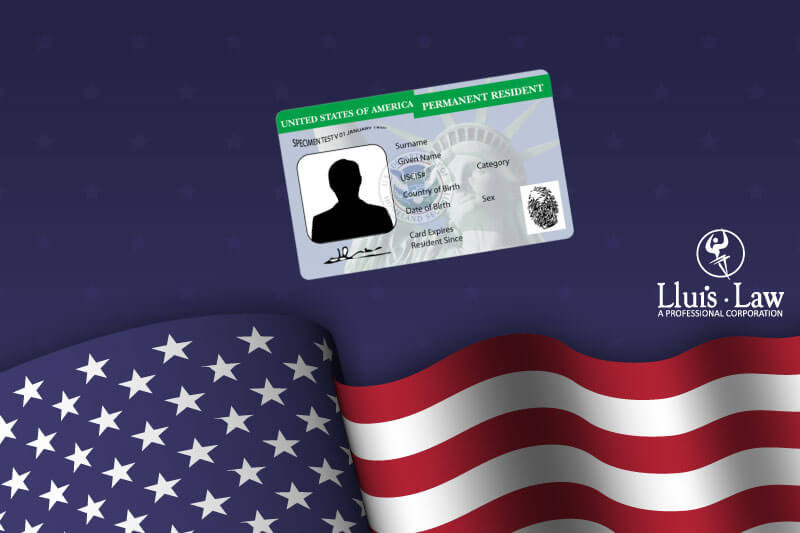Can I Fly With A Mexican Passport In The Us? Absolutely! At gaymexico.net, we understand the unique concerns of LGBTQ+ individuals traveling, and we’re here to provide clarity. A valid Mexican passport allows you to travel within the United States. It’s essential to have proper identification. To ensure a smooth and secure journey, it’s vital to be aware of all necessary travel documents, including visas, and understand your rights. Whether you’re exploring vibrant cities or attending LGBTQ+ events, knowing the requirements for travel is key. This article will guide you through everything you need to know about using your Mexican passport for travel within the U.S., covering topics like TSA guidelines, REAL ID requirements, and the rights of travelers, ultimately offering peace of mind for your journeys, aligning with our goal to provide an inclusive and welcoming experience for LGBTQ+ travelers in Mexico.
1. Can an Illegal Immigrant Fly Within The US in 2025?
Yes, undocumented immigrants can fly within the United States, though it’s crucial to have some form of identification. The Transportation Security Administration (TSA) requires all travelers to present a valid, government-issued ID to board a flight.
 Undocumented immigrants at airport security
Undocumented immigrants at airport security
For undocumented immigrants, acceptable forms of identification include a foreign passport or an Employment Authorization Document (EAD) issued by USCIS. According to the TSA, these documents can be used for domestic air travel. Remember to check the expiration date and ensure your documents are valid. It’s also worth noting that policies and regulations can change, so staying informed about the latest updates from official sources like the TSA is always a good idea.
1.1. How Is It Possible That Undocumented Immigrants Can Fly Domestically In The United States?
It’s possible because no federal law explicitly prohibits it. While immigration status is a significant factor, TSA focuses on verifying identity for security purposes. However, the situation may become more complex with the implementation of the REAL ID Act.
The REAL ID Act sets minimum security standards for state-issued driver’s licenses and identification cards accepted by federal agencies, including TSA. As of 2025, travelers will need a REAL ID-compliant driver’s license or another acceptable form of identification to fly domestically. The requirements to obtain a REAL ID include providing proof of:
- Full legal name
- Date of birth
- Social Security number
- Legal status in the United States
- Two proofs of address
If you can’t obtain a REAL ID, you can still use a valid foreign passport for domestic air travel.
1.2. What Happens If My Documents Have Expired?
Traveling with expired identification documents is generally not allowed. However, TSA has, in the past, temporarily accepted expired driver’s licenses and state identification cards up to one year after the expiration date due to specific circumstances.
It is best practice to ensure your documents are up to date before traveling. Check the TSA website for the most current policies regarding expired identification, as these policies can change. Traveling with valid identification ensures a smoother and less stressful airport experience.
1.3. Can Minors Fly Within The United States If They Are Illegal Immigrants?
Minors (under 18) are not required to show identification when traveling domestically within the U.S. However, airlines may require documentation for unaccompanied minors to ensure their safety.
For international travel, minors, including those who are undocumented, are required to have a valid passport. If you plan to travel outside the U.S. with a minor, make sure to obtain the necessary travel documents in advance.
2. Requirements To Travel By Plane Within The United States In 2025
Even if someone is undocumented, they can fly within the U.S. if they present acceptable identification. As of 2025, the forms of identification include:
- State-issued enhanced driver’s license
- U.S. or foreign passport
- Traveler card issued by DHS (e.g., NEXUS, SENTRI, FAST, or Global Entry)
- Veteran Health Identification Card (VHIC)
- U.S. Merchant Mariner Credential
- HSPD-12 PIV card
- Canadian provincial driver’s license or Indian and Northern Affairs Canada card
- Identification of the United States Department of Defense
- Lawful permanent residence card
 Green Card holders have travel rights
Green Card holders have travel rights
For LGBTQ+ travelers, especially those who may face additional scrutiny due to their gender identity or expression, it’s particularly important to ensure that your identification documents are up-to-date and match your presentation. If you have questions about name or gender marker changes on your documents, resources like the National Center for Transgender Equality can provide guidance.
2.1. Can You Travel Without A Passport Within The United States?
U.S. citizens do not need a passport to travel within the United States. They can use other forms of acceptable identification, such as a driver’s license or state ID.
However, when traveling internationally, a valid U.S. passport is required. For non-U.S. citizens, a passport from their country of origin is generally required for both international and, in many cases, domestic travel. Always verify the specific requirements of your airline and destination before traveling.
3. What Else Do I Need To Travel Within The United States?
Beyond the identification requirements, it’s important to know what to expect whether traveling by air, sea, or land within the U.S.
3.1. Air Travel
To fly within the U.S., acceptable forms of identification include:
- State ID
- State driver’s license
- Foreign passport
Beginning in 2025, the REAL ID Act will be enforced, requiring a REAL ID-compliant document or a valid foreign passport. Ensure your ID is REAL ID-compliant or use your foreign passport.
 Travelers need to understand visa guidelines
Travelers need to understand visa guidelines
3.2. Traveling By Sea
For sea travel within the U.S., documentation requirements vary depending on the transport company. Always check with the specific company for their requirements.
For international sea travel, such as a ferry from California to Baja California, Mexico, a valid passport is required. Make sure to check the specific requirements of the ferry company and destination.
3.3. Ground Transportation
Ground travel documentation also varies by transportation company. Contact the company in advance to confirm the necessary documents.
On public transportation within a city, identification is generally not required. However, a passport is needed for bus or train travel crossing the border into Mexico or Canada.
4. Can I Re-Enter The United States Without Papers If I Left The Country?
No, re-entering the U.S. without proper documentation can have serious consequences. Staying in the U.S. illegally, whether due to irregular entry or visa overstay, can result in a re-entry ban.
The duration of the re-entry ban depends on the length of unlawful presence:
| Unlawful Presence Length | Re-Entry Ban |
|---|---|
| Less than 180 days | No automatic ban, but entry may be denied |
| Between 180 days and one year | Three-year re-entry ban |
| More than one year | Ten-year re-entry ban |
If you are barred or inadmissible to the U.S., you may be eligible for an immigration waiver. Consult with an immigration attorney to explore your options.
4.1. Can I Travel Outside The United States If I Have A Pending Immigration Case?
If you are involved in an immigration process and plan to leave the country, you will need the appropriate documents to return. This may include advance travel permission (Advance Parole) or re-entry permission.
These requirements apply to applicants and beneficiaries of various immigration processes. Always consult with an immigration attorney before traveling outside the U.S. while your case is pending.
4.2. What Happens If You Are Arrested Or Detained By Immigration?
If you are stopped by immigration officials, you are not required to answer questions beyond identifying yourself. It’s advisable to remain silent and not reveal your immigration status, as this may lead to detention.
ICE (Immigration and Customs Enforcement) can be intimidating, especially if you are undocumented. Know your rights and seek legal counsel if you are detained.
4.3. Traveling While Having A Deportation Order
 Immigrants need to be careful about travel
Immigrants need to be careful about travel
Even if you are in removal proceedings, you may still be able to travel within the U.S. if you have:
- The notice to appear (Form I-862)
- Some form of identification
If you are in this situation, consult with an immigration attorney specializing in deportations to understand your rights and options.
5. Immigration Status And Eligibility To Fly Within The United States
An individual’s immigration status significantly affects their ability to travel within the U.S. Here’s how different statuses impact travel eligibility.
5.1. Lawful Permanent Residents
Lawful permanent residents (Green Card holders) have the right to travel freely throughout the U.S. They do not require additional documentation beyond their Green Card.
Green Card holders have similar privileges to U.S. citizens. Ensure your Green Card is valid and carry it with you when traveling.
5.2. Undocumented Immigrants
Undocumented immigrants face challenges, as airlines require passengers to provide government-issued identification.
Airports have strict security controls that verify passenger identification. While a foreign passport or other acceptable forms of ID can be used, it’s important to be aware of potential risks and have proper documentation.
5.3. DACA Recipients
DACA (Deferred Action for Childhood Arrivals) recipients have some flexibility when traveling but must stay updated on immigration policies and regulations.
DACA recipients receive work permits and Social Security Numbers (SSNs), allowing them to obtain valid forms of identification. Always carry your DACA approval notice and work permit when traveling.
5.4. Holders Of Temporary American Visas
Foreigners with F-1 student visas, tourist visas, or B-1 business visas can generally travel within the U.S. They must ensure they:
- Keep all travel documents with them
- Review Form I-94 (arrival/departure record)
- Know the remaining validity period of their visa
If a visa is about to expire or has already expired, it can cause complications when traveling in the U.S. Always check your visa status and ensure it remains valid throughout your trip. Some foreigners may be eligible for an ESTA authorization to travel to the U.S. without a visa.
6. How To Prepare To Travel Within The United States Without Papers?
Preparing to travel within the U.S. without papers requires careful attention to documentation and knowing your rights.
6.1. Domestic Flight
- Ensure your identification is properly prepared: Verify that the name on your ticket matches your ID exactly.
- Protect your electronic devices: While authorities may ask for your phone number, you are not required to reveal your password.
- Create a security protocol: Designate at least two individuals who have access to your essential documents, such as your lawyer, family, and friends.
For LGBTQ+ travelers, it’s wise to be prepared for additional scrutiny. Organizations like the ACLU offer resources on travelers’ rights and what to do if you’re stopped by authorities.
6.2. When Traveling By Land
- Ensure your DACA permit or any authorization to leave the country is valid for the entire duration of your stay abroad.
- Carry USCIS documents proving your immigration status to facilitate your return.
- Confirm that there are no stopovers outside the U.S.
7. What To Keep In Mind When Traveling By Land Without Papers In The US?
If you are undocumented and planning to travel by land in the United States, be aware of your rights and potential challenges.
7.1. For Public Buses And Trains
Border Patrol agents have been known to conduct immigration checks on buses and trains without court orders. Although CBP prohibits these actions, it’s always advisable to know your rights:
- Remain silent
- Refuse searches of belongings
- Present valid immigration documents
- Record videos of immigration agents
- Request the name and number of immigration officials
7.2. For Other Ground Transport
Some states allow undocumented immigrants to drive legally and apply for a driver’s license. Check with your state’s DMV to confirm your eligibility.
If stopped by police or immigration authorities while driving:
- Stop the vehicle, turn it off, turn on the interior light, partially open the window, and place your hands on the steering wheel.
- Show your driver’s license, registration, and proof of insurance when asked by police.
- You may refuse to allow the search of your vehicle unless the police have evidence of a crime.
- Both drivers and passengers can remain silent. Passengers can ask if they can leave; if so, do so quietly.
7.3. Can The Police Ask Me About My Immigration Status?
Yes, but you can remain silent under the Fifth Amendment of the Constitution. Do not lie about your immigration status or provide false documents.
8. Recommendations for an Illegal Immigrant Planning to Fly Within The United States
 Tips to travel safely within the US
Tips to travel safely within the US
8.1. Arrive Early At The Airport
Arriving early helps avoid last-minute stress, ensuring a more enjoyable travel experience.
8.2. Bring The Correct Documentation
When traveling by air within the United States as an immigrant, carry all necessary documentation, such as a valid passport and visa if required.
Carry copies of your documents as a precaution against loss. Bring additional documents, such as letters of employment or sponsorship.
8.3. Know Your Rights
In addition to your rights when facing immigration in the U.S., you also have rights at the airport, including the right to privacy and personal belongings.
If you believe your rights have been violated, seek legal representation.
9. Frequently Asked Questions On An Illegal Immigrant Options To Fly Within The US
9.1. Can you travel within the United States with an expired passport?
Generally, no. Traveling within the United States requires a valid, unexpired form of identification. While policies can vary, it’s best to have a current, valid passport or another accepted form of ID.
9.2. Can I Travel with a Mexican Passport in the United States?
Yes, traveling through the United States with a valid, unexpired Mexican passport is possible. It’s a recognized form of identification for both domestic and certain international travel scenarios.
9.3. If I fly as an illegal immigrant through the United States, can a pilot order me to get off the plane?
Aircraft pilots have the authority to refuse to fly with a passenger if they deem that passenger a threat to the safety of the flight. This decision isn’t solely based on immigration status but on potential security risks.
9.4. Can you travel within the United States without papers but with a work permit?
If you have a valid work permit, you can generally travel safely through all states in the country. However, it is important to always carry all possible identification documents with you.
10. Lawyers In Los Angeles To Fix Papers In The United States
Even though you can change your status from a visitor visa to a Green Card, it is complex and stressful. For these cases, an immigration lawyer can attend to his legal needs.
Now that you know that you can travel within the United States without papers, you are much more informed to face this situation.
LGBTQ+ Resources and Support
For LGBTQ+ travelers, ensuring a safe and welcoming travel experience is paramount. Here are some resources that offer support, information, and advocacy:
| Resource | Description |
|---|---|
| gaymexico.net | Your go-to website for LGBTQ+ travel guides, event listings, and community connections in Mexico. |
| The National Center for Transgender Equality | Provides information on transgender rights and resources, including guidance on updating identification documents. |
| Human Rights Watch LGBTQ+ Rights Program | Works to combat discrimination and violence against LGBTQ+ people around the world. |
| ACLU (American Civil Liberties Union) | Offers resources on travelers’ rights and what to do if you’re stopped by authorities. |
At gaymexico.net, we are committed to providing comprehensive, up-to-date, and reliable information for the LGBTQ+ community. Our platform offers detailed travel guides, event listings, and opportunities to connect with the LGBTQ+ community in Mexico. We strive to create a safe and inclusive space for everyone to explore and enjoy the beauty and diversity of Mexico.
Ready to plan your next adventure? Visit gaymexico.net today to discover LGBTQ+-friendly destinations, events, and resources! Connect with our community and experience the best of Mexico with confidence and pride.
Address: 3255 Wilshire Blvd, Los Angeles, CA 90010, United States
Phone: +1 (213) 380-2177
Website: gaymexico.net